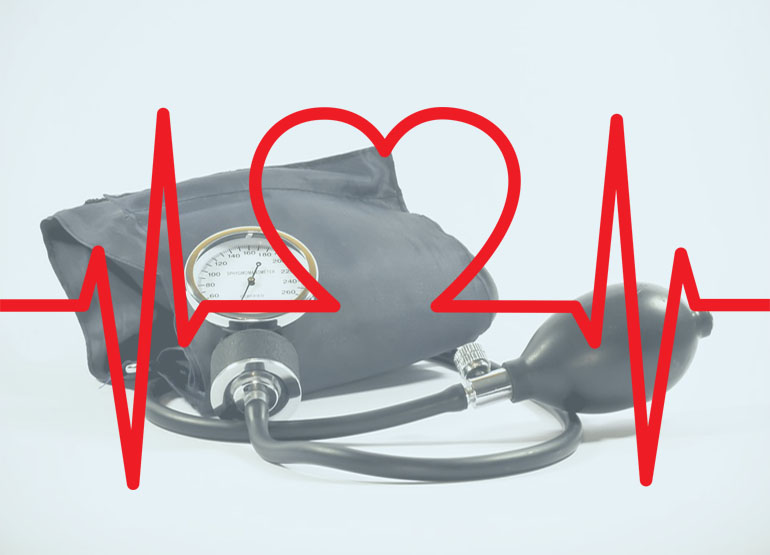Health Pages
Making Change
Making Change
ACHIEVE AND MAINTAIN A HEALTHY WEIGHT
Excess weight, especially in the abdominal region, can cause your blood cholesterol to rise. The key to achieving a healthy weight is to make behavioral changes that will last a lifetime. If you are overweight, a balanced diet combined with an adequate amount of exercise will help you achieve and maintain a healthy weight.
For a heart healthier way of living, in addition to eating well, pursue regular physical activity, avoid smoking, and keep stress in check.
Mediterranean and low-carbohydrate diets may be effective alternatives to low-fat diets. The more favorable effects on lipids (with the low-carbohydrate diet) and on glycemic control (with the Mediterranean diet) suggest that personal preferences and metabolic considerations might inform individualized tailoring of dietary interventions. Read more...
EAT MORE FOODS HIGH IN COMPLEX CARBOHYDRATES AND DIETARY FIBRE
Complex carbohydrates are the starches found in bread, cereal, pasta, grains like rice and barley, legumes like lentils, peas and beans, and certain vegetables like potatoes. These foods are the foundation of healthy eating because they are nutritious and low in fat, and can be good sources of dietary fibre. People whose diet is rich in complex carbohydrates and fibre seem less likely to develop heart disease. Studies even indicate that certain types of dietary fibre can help reduce the level of blood cholesterol. By eating whole-grain bread and cereal products, along with a variety of fruits, vegetables and legumes, you'll get plenty of complex carbohydrates and dietary fibre.
EAT LESS FAT, ESPECIALLY TRANS FAT AND SATURATED FAT
A diet rich in fat, especially trans fats, is one of the factors that contribute significantly to increasing blood cholesterol. Cutting down on fat, padicularly trans fat, is by far the most important step in changing your eating habits.
Trans fatty acids, also known as trans fats are the worst type of dietary fats. They raise the total cholesterol and LDL "bad" cholesterol level of the blood more than any other food in the diet. Some researches show that trans fatty acids also lower the level of beneficial HDL or "good" cholesterol which in turn increases the risk for heart disease and other diseases. Trans fatty acids come from partially hydrogenated vegetable oils which are found in margarine's, shortenings, cakes, pies and cookies (especially with frosting), candies (especially with creamy fillings), crackers, snack foods, microwave popcorn (buttered and flavored varieties), frozen pizzas, frozen biscuits, pastries, muffins, doughnuts (especially frosted or cream-filled), breaded and fried chicken and fish, fried fast foods. Read more...
Another fats you should try to limit are saturated fats. They are found mainly in foods of animal origin such as meat, poultry and unskimmed dairy products. They are also found in so-called tropical oils like palm and coconut oil and in hydrogenated vegetable fats like shortening and margarine. Find out more about saturated fats...
TO CONTROL YOUR FAT INTAKE:
 Think of the major sources of fat in your diet.
Think of the major sources of fat in your diet.
 Reduce the portion size and the frequency with which you eat higher fat foods.
Reduce the portion size and the frequency with which you eat higher fat foods.
 Substitute lower fat versions whenever possible.
Substitute lower fat versions whenever possible.
 Balance your intake of higher and lower fat foods throughout the day or week.
Balance your intake of higher and lower fat foods throughout the day or week.
 Make one change at a time... small changes add up.
Make one change at a time... small changes add up.
 Remember that all foods can be enjoyed in a healthy diet. Balance is the key.
Remember that all foods can be enjoyed in a healthy diet. Balance is the key.
Remember: The largest source of fat in our diet is the fat we add to our foods, e.g., butter/ margarine on toast or vegetables, cream sauces on pasta, dressings on salads, mayonnaise, fat used for frying etc.
Below are links and information you need to know to make smart choices in your life and help your to make changes and take charge of our health.
Good to Know Information:
 Acai Berry - The Number One Super Food In The World
Acai Berry - The Number One Super Food In The World
 Coenzyme Q10
Coenzyme Q10
 Antioxidants
Antioxidants
 Essiac Herbal Supplement
Essiac Herbal Supplement
 Constipation
Constipation
 How Dead is Your Diet?
How Dead is Your Diet?
 The Power Of Relaxation
The Power Of Relaxation
 Meditation For Health Purposes
Meditation For Health Purposes
 Teasting Treatments
Teasting Treatments
 First Aid
First Aid



